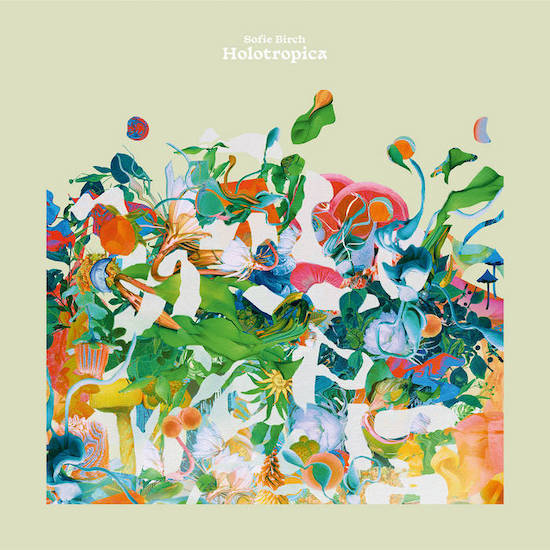I remember my first experience with Sofie Birch’s music, just before the 2019 Idealistic festival in Warsaw, where I saw her playing. I listened to her album Planetes practically endlessly – it was an unconventional approach to atmospheric ambient music, immersed in some vernacular trance. The young artist from Copenhagen has already published recordings intermittently: the first two in 2017, then another two in 2021, plus specials like a curated composition for the wonderful
When you type her name into a search engine, the first thing that pops up is her website, described as “Sofie Birch – Ambient Musician”. It’s hard not to connect the composer with the genre, but the labels that have clung to it would be hurtful to describe her music, especially when listening to Holotropica.
What first draws your attention is the number of guests present, featuring in more than half of the compositions. Fortunately, they don’t overwhelm the material but complement it brilliantly with ornaments, contributing much of the richness of this album. That attitude can be heard when Nana Pi’s saxophone emerges from the glittering synth haze on ‘Observatory’. It’s soothing and subdued, complemented by punctuated electronic sounds reminiscent of a vibraphone with a lot of reverb. Perhaps there are residual, processed field recordings in here somewhere, too.
On ‘Surface Pan’, in the background of some pulsating Bitchin Bajas-style parts, the flute of Astrid Fabrin fascinatingly and unobtrusively complies with the whole. The same goes for the bit of quasi-orchestral music on ‘Humidity’, where Birch breaks the smooth ambient surface, gradually building it up with march-like motives, introducing Pi with a free-style saxophone that soon gets lost in layers of reverb. Some new age influences are broken up, such as the club beat in ‘Hypnagogia’, while field recordings can be an interesting link in the chain, as in the transition from ‘Ubiquitous’ to ‘Hall’.
In a way Holotropica sounds like an imaginary soundtrack to a place. It could fit well with any kind of sounding environment. I associate it a little with the achievements of Piotr Kurek, a little with the strange soundscapes of Nikolaienko. It’s not about linear continuity, but more a state of psychedelic suspension. For so-called ambient music this album is too catchy. Sofie Birch gives that genre a new colour, disenchanting the genre with this charming but unconventionally composed record.


